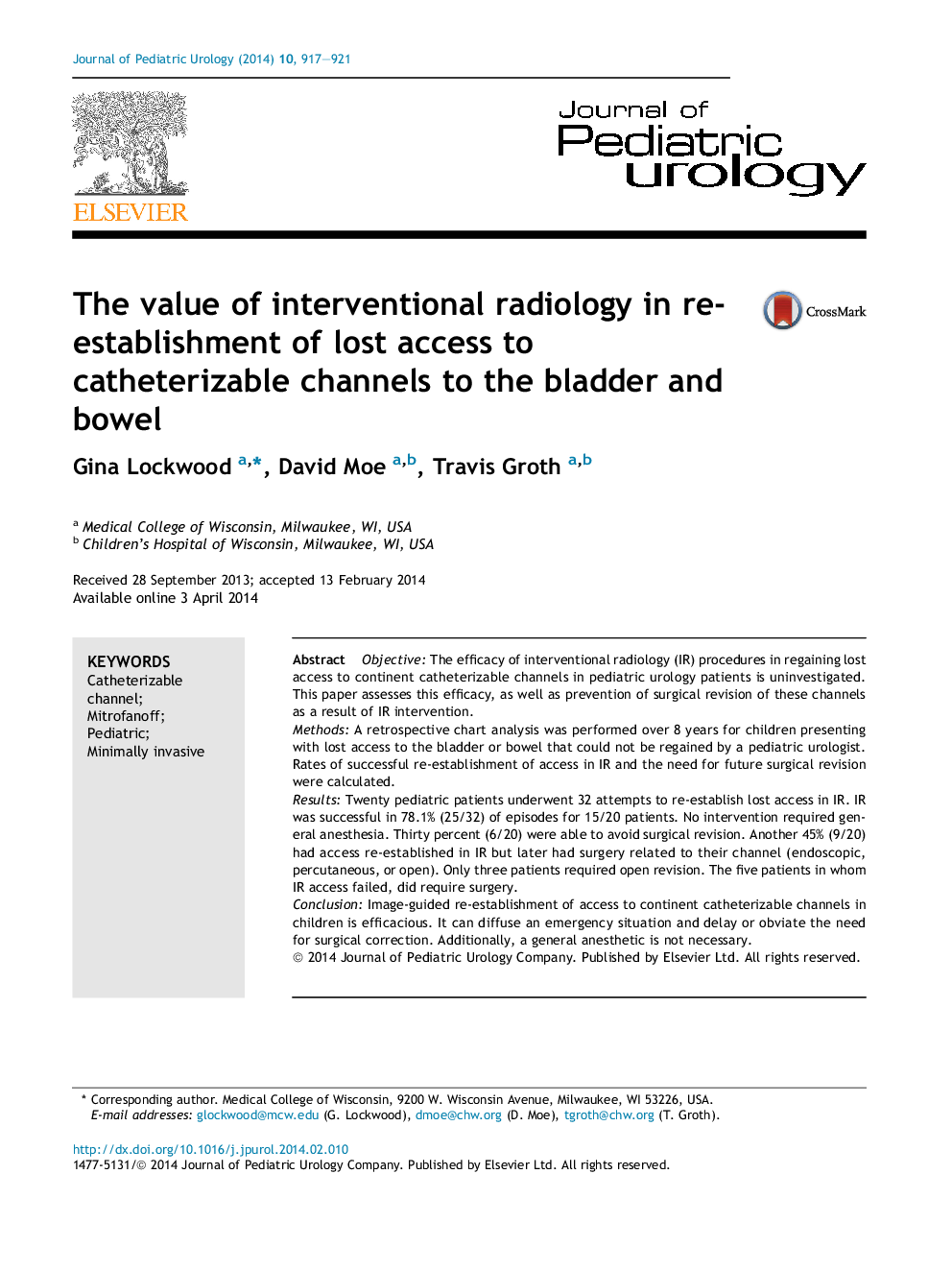| Article ID | Journal | Published Year | Pages | File Type |
|---|---|---|---|---|
| 4162369 | Journal of Pediatric Urology | 2014 | 5 Pages |
ObjectiveThe efficacy of interventional radiology (IR) procedures in regaining lost access to continent catheterizable channels in pediatric urology patients is uninvestigated. This paper assesses this efficacy, as well as prevention of surgical revision of these channels as a result of IR intervention.MethodsA retrospective chart analysis was performed over 8 years for children presenting with lost access to the bladder or bowel that could not be regained by a pediatric urologist. Rates of successful re-establishment of access in IR and the need for future surgical revision were calculated.ResultsTwenty pediatric patients underwent 32 attempts to re-establish lost access in IR. IR was successful in 78.1% (25/32) of episodes for 15/20 patients. No intervention required general anesthesia. Thirty percent (6/20) were able to avoid surgical revision. Another 45% (9/20) had access re-established in IR but later had surgery related to their channel (endoscopic, percutaneous, or open). Only three patients required open revision. The five patients in whom IR access failed, did require surgery.ConclusionImage-guided re-establishment of access to continent catheterizable channels in children is efficacious. It can diffuse an emergency situation and delay or obviate the need for surgical correction. Additionally, a general anesthetic is not necessary.
